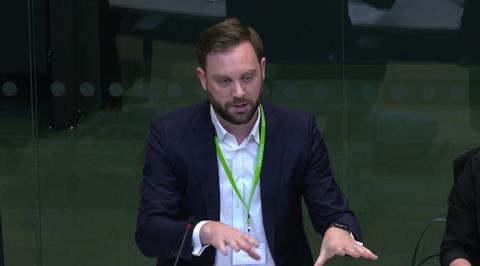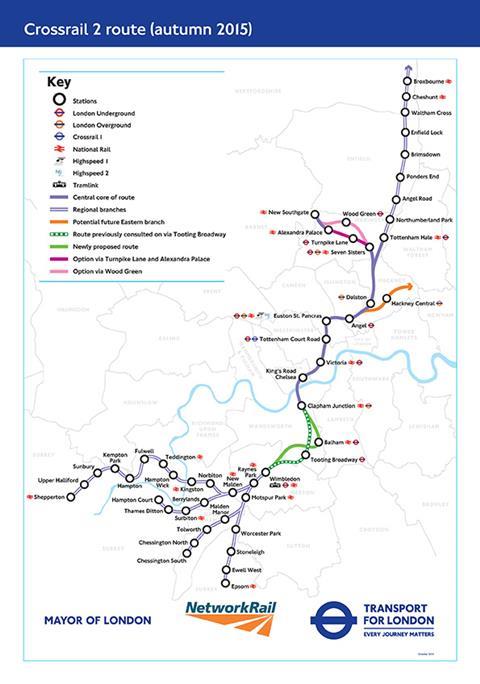Transport body’s finance chief complains at lack of long-term funding settlement
A lack of clarity around long-term funding from government has forced Transport for London to shelve major infrastructure projects, according to the body’s finance chiefs.
Giving evidence to the London Assembly Budget and Performance Committee, Patrick Doig and Rachel Sherry said uncertainty around capital funding meant projects such as the already stalled Crossrail 2 had been moved from being a current priority to a future one.
Doig, chief finance officer at TfL, said that since 2019, the organisation’s maximum capital funding certainty had been 19 months.

“That means the pipeline of major enhancements and renewals has slowed down,” he said.
“It was understandable during the pandemic […] but we now find ourselves in the position of being the only transport body in the country without long-term funding certainty.”
TfL and the Department for Transport (DfT) struck their most recent funding settlement at the end of last summer after months of wrangling.
The deal, which funds TfL until March 2024, saw the government commit £1.2bn to the body’s capital investment programme, as well as ongoing revenue support if passenger numbers do not recover from the pandemic at the budgeted rate.
>> WW+P’s Chris Williamson on why government should invest in London infrastructure
The government’s contribution to TfL’s capital spending after this period has yet to be determined.
TfL finance director Sherry told the committee that it had been working with the government’s appointed advisor, KPMG, to produce a 70-page report on the impact of inflation on its desired capital programme for 2024.

The report put the cost of inflation at £279m but Sherry said it had yet to receive a response from the DfT, which she said “creates uncertainty” for spending this year.
Senior figures at TfL have previously warned that its precarious funding situation was having an impact on talent retention at the organisation.
The decision to re-prioritise Crossrail 2 comes just a month after London Councils, the umbrella group for the city’s 33 local authorities, named it on its list of projects which they said were essential to the capital’s future growth.
Doig said that changing travel patterns had also affected the decision to de-prioritise Crossrail 2. “Our immediate priority is safeguarding that route such that we can pick that up when conditions exist,” he added.




























No comments yet